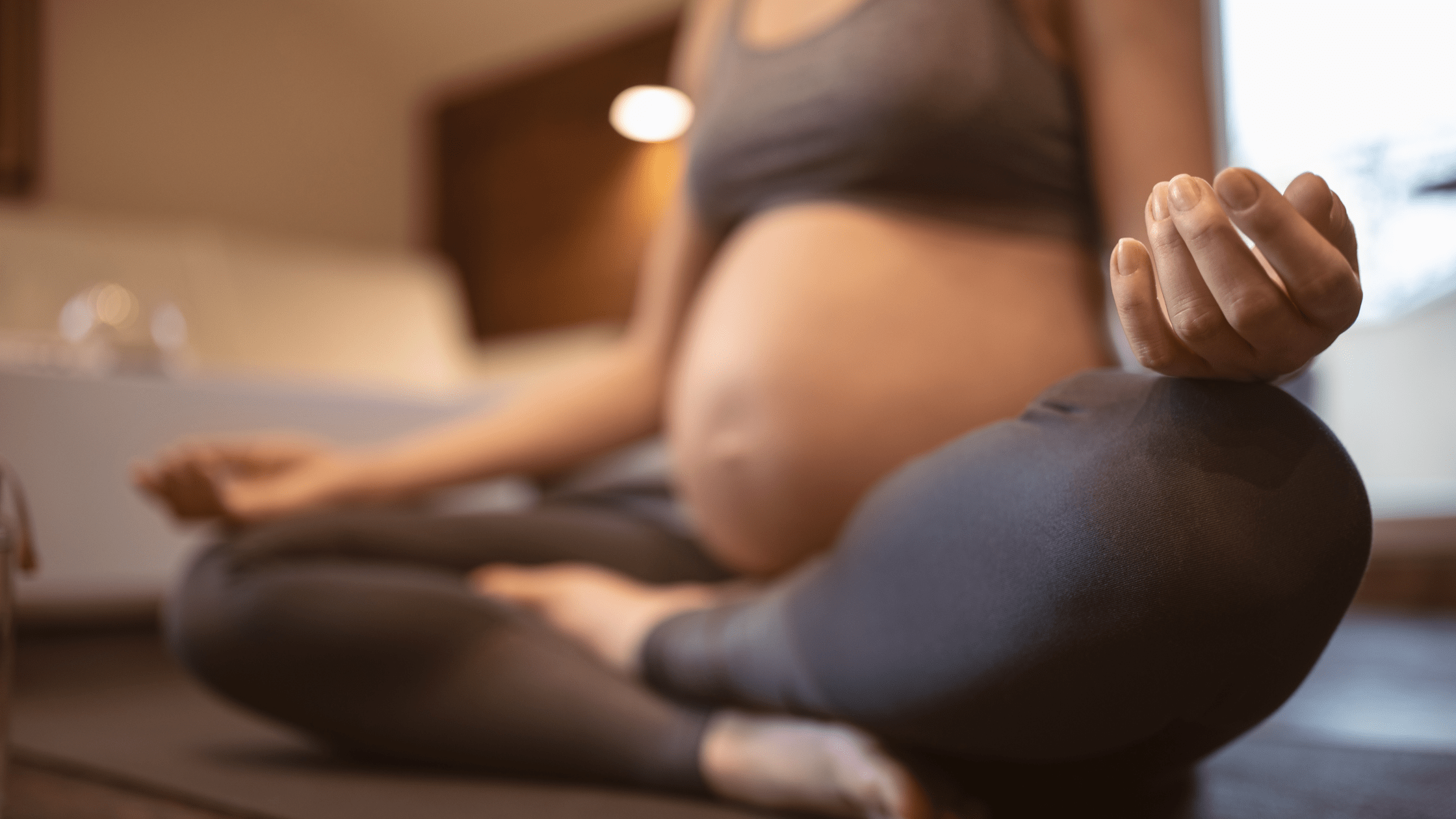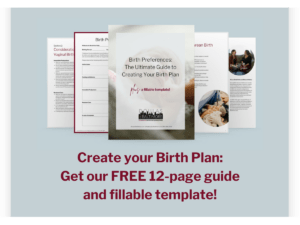If you’re pregnant it’s likely you’ve heard of Group B Strep (GBS), probably as one of the required tests for pregnant individuals. What is it and why does it matter? While GBS is common, (1 in 4 pregnant individuals have it present!) if left untreated it can pose serious health risks. Today we’re taking a look at what GBS is, treatments and testing, and the bottom line so you can make informed and empowered decisions for you and your baby.
What Is Group B Strep (GBS)?
GBS is a common bacterium (Streptococcus agalactiae) that naturally exists and is typically harmless in adults. It resides in the digestive, urinary, and reproductive systems. While the bacteria may be present (colonization) it often doesn’t lead to infection.
If a bacteria has colonized, it simply exists. It’s when it gets out of control that it can cause infection in the body. Even if one is asymptomatic, infection could be present and is very dangerous for newborns which is why testing is so important. An estimated 20-25% of pregnant individuals have GBS present.
Remember: levels can vary over time.
Why Is Group B Strep a Concern During Pregnancy?
Risks to the Pregnant Person:
Those who have GBS present generally are unaffected. Rarely, they can encounter complications such as Urinary Tract Infections (UTIs), infection of the amniotic fluid or infection of the uterus once the baby has arrived.
Risks to the Baby:
The risks of GBS are generally for the baby. Transmission of the bacteria to the baby during childbirth can lead to early-onset (first week) or late-onset (weeks 1–3) disease. Complications from contracting this bacteria include sepsis, pneumonia, meningitis, long-term disabilities, or even mortality.
Though this can sound scary, please keep in mind that these are rare complications, only affecting 1 or 2 babies out of 100 if the laboring person doesn’t receive antibiotics during labor. Though rare, it’s vital to understand the facts.
Risk Factors for Transmission:
Your baby may be at a higher risk for contracting GBS if you experience preterm labor, prolonged rupture of membranes (greater than 18 hours), a fever during labor, or a prior GBS-positive baby. Your baby is also at risk if you test positive on your routine GBS testing.
How Is GBS Tested for in the United States?
The United States takes a broad approach to testing using a Universal Testing model that requires a routine vaginal/rectal swab at 36–38 weeks. This will typically be done at your OBGYN or Midwife’s office. This swab is then cultured and evaluated to determine if GBS bacteria are present. If yes, the results will be communicated to you along with options for treating and intervention.
This testing is done between 36-38 weeks to ensure accuracy (remember, this bacteria varies in levels present) and avoid overuse of antibiotics.
Urine testing can also detect GBS earlier in pregnancy. Typically a positive result won’t prompt any action by your care provider but if heavy colonization is indicated, this could require antibiotics during pregnancy.
You might be surprised to find that countries around the world vary in their approaches. Canada, for instance, aligns with the US perspective of Universal Testing whereas Nordic countries such as Sweden and EU countries such as the UK prefer a Risk-Based approach where testing is only done if requested or indicated. Regardless, it’s important to ask questions and follow the recommendations of your trusted healthcare provider.
What Are the Options If I Test Positive for GBS?
Intrapartum Antibiotics:
The gold standard for care is IV penicillin administered during labor at least 4 hours before delivery. This helps ensure efficacy of the antibiotic prior to baby passing through the birth canal. The timing is important!
Special Scenarios:
If labor is rapid it can limit the efficacy of the antibiotics. Antibiotics will still be given but baby will likely be monitored more closely. In the event of a Cesarean section delivery, antibiotics won’t be needed if labor hasn’t begun and your water hasn’t broken.
What Else Should I Know About Group B Strep?
Prevention Strategies: There are no preventative measures that can be taken to eliminate GBS bacteria in the body. This bacteria occurs naturally. Once detected, prompt antibiotic treatment reduces neonatal risk by ~80%.
Newborn Care: It’s important to monitor the baby for fever, lethargy (difficult to wake), or breathing struggles. These can all be signs of infection and should be addressed as soon as possible by a medical provider. The baby’s pediatrician should be the first call. Antibiotics are the standard treatment.
Postpartum Care: Mind the birthing person’s temperature and symptoms alongside baby’s, paying attention to any changes and seeking care if they’re noted.
Emotional Support: Addressing parental anxiety and connecting with support groups.
Future Pregnancies: Retesting will be required for all subsequent pregnancies, however, a positive test isn’t a guarantee. Group B Strep can be a transient bacteria that recedes, eliminating the risk to the birthing person and their baby.
Are There Myths About GBS?
Yes! There are many myths about GBS that can feel scary or leave you feeling confused. The main ones are:
GBS is not a sexually transmitted infection. It is a naturally-occurring bacteria that exists within the body and a common one, at that.
Antibiotics during labor do not harm the baby. While it is true that the antibiotics could have a small impact on baby’s microbiome, these effects have not been studied at length. Preliminary studies with limited data suggest that the impact is short-term and the effects can be mitigated to some degree by choosing to breast or chestfeed.
Positive status doesn’t guarantee infant infection! Even if you do test positive and aren’t able to recieve antibiotics quickly the number of newborns that get sick from GBS are few. While the illness is a very serious one and shouldn’t be taken lightly, it is still rare.
No proven remedies are known to exist besides antibiotics during labor. There are many online suggestions such as Hibiclens or Garlic to change the bacteria levels. There are no scientific studies to prove any of the alternatives work to keep your baby safe.
Wrapping it all up
If you’ve found yourself here because you have tested positive for GBS, don’t panic. Remember, GBS is a bacteria that naturally exists within the body. There is nothing you could do that would change that. If you test positive for GBS at your routine screening, remember that it is manageable with proactive care.
Antibiotics reduce both neonatal and postpartum risks for baby and parent and can be simply administered during labor.
As with everything, remember to ask questions and follow the guidance of your medical care provider. With early intervention, proper treatment, and consistent care you and your baby will not experience any ill effects from GBS.











